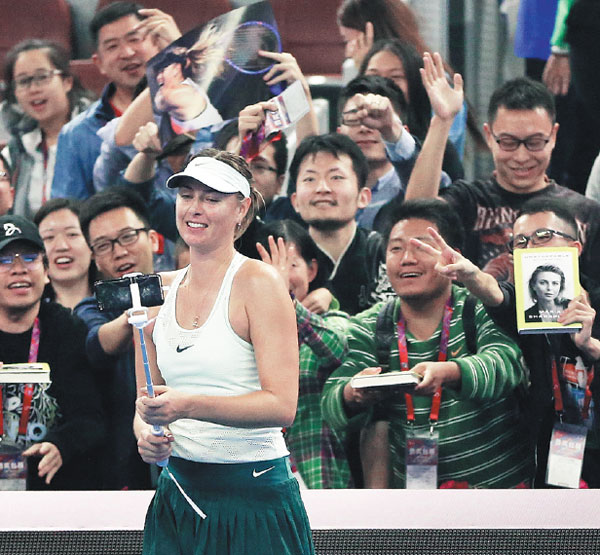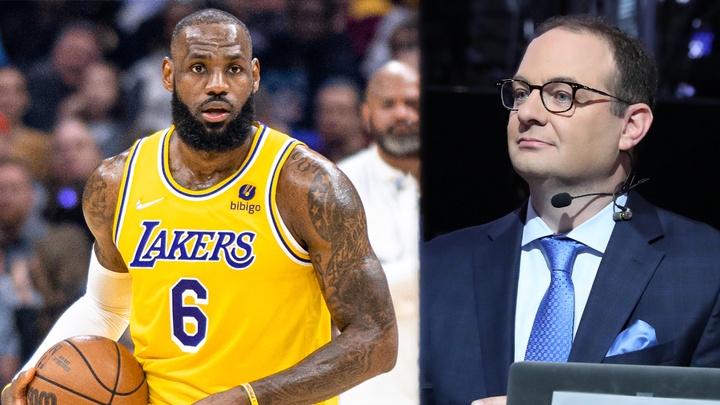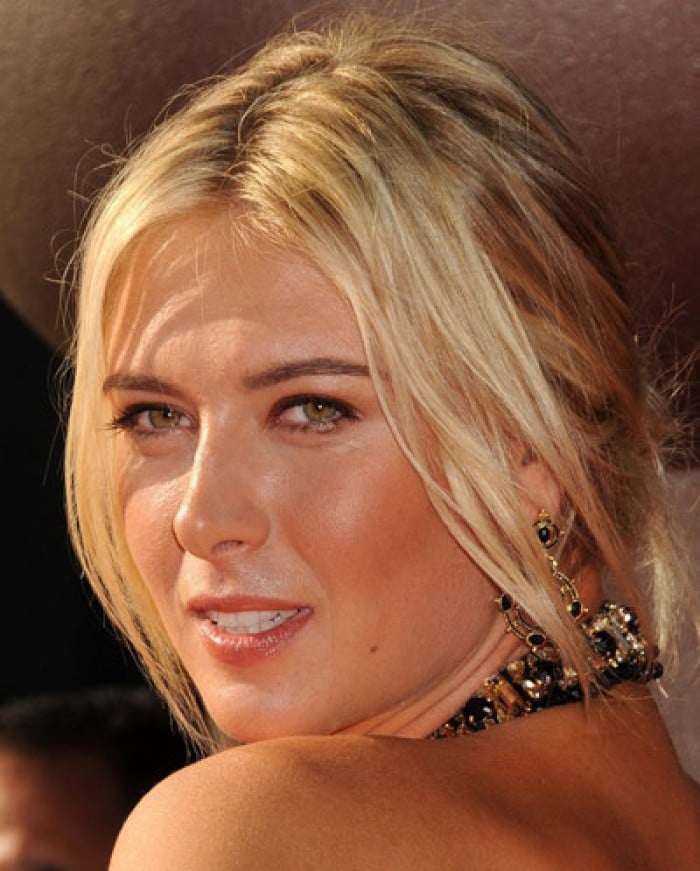
Russia’s Maria Sharapova takes a selfie with fans after her victory over Latvia’s Anastasija Sevastova in the opening round of the China Open in Beijing on Saturday. Feng Yongbin / China Daily |
Sharapova motivated by warm welcome to China Open in Beijing
Maria Sharapova’s return to professional tennis after a doping ban has been far from smooth, given the critical stance of some players and pundits.
Yet the reception the five-time Grand Slam champion has enjoyed in Beijing at the China Open seems nothing short of a welcome home as her Chinese supporters are cheering for her on and off the court.
Sharapova drew huge ovations at the Diamond Court every time she scored a point en route to a thrilling 7-6 (7/3), 5-7, 7-6 (9/7) opening round win over 16th-seeded Anastasija Sevastova of Lativa on Saturday, but said she remains far from her best.
“I understand that it’s a process,” said Sharapova, an aggressive baseliner with prodigious forehand power.
“The physicality of tennis, you can’t really replicate it. That’s something that you just adjust to. It doesn’t come easy. It takes time and a lot of matches.”
Dazzling her Chinese fans hasn’t been nearly as difficult.
“It’s been a really special reception. Seeing them, just the signs and the books they have, is so special,” Sharapova said of fans flocking to watch her practice, brandishing copies of her newly-published memoir, Unstoppable: My Life So Far.
“I guess shipping is quite fast to China. In some countries I see fans still waiting for the book, but here I have signed quite a few copies already.”
The book was released in early September after her US Open campaign and has not yet hit the stores in China – but diehard fans are ordering it online.
“I bought it from an overseas website as soon as it was released. I have read it twice already,” said Wang Zhenyi, who hoped to obtain an autograph.
A superstar in the sport for more than a decade, Sharapova said everything on the circuit that she’d been used to now feels fresh and invaluable.
In June 2016, the 30-year-old was issued a two-year suspension for testing positive for the prohibited substance meldonium, a heart medication, at the 2016 Australian Open.
Sharapova claimed she had taken the medicine for years and didn’t realize it had been placed on the banned list at the beginning of 2016. The suspension was later reduced to 15 months, and she returned to action in April.
“There’s definitely a different perspective and understanding of fans, of what they mean to me, of little things,” she said.
“When you do something for many years, you start following a routine and you take some things for granted,” added the former world No 1, who now sits at No 104. “When you’re not part of that and then you get back, it’s the little things that really get you excited.”
Sharapova’s low ranking has been an issue. Only through generous wildcard offers is she able to play the elite tournaments for which she used to automatically qualify.
Her wildcard for the US Open, where she played matches on center court at Arthur Ashe Stadium, stirred resentment among her peers.
Former world No 1 Caroline Wozniacki said it was unfair to give someone returning from a drug ban the right to play all her matches on the biggest stage.
Sharapova’s Chinese colleagues seem more forgiving.
“I’m a big fan of Sharapova,” Zhang Shuai said after beating Yulia Putintseva 6-4, 6-4 in her opener in Beijing on Sunday.
“I admire the style she plays, the way she fights till the end. That’s why there are so many fans totally crazy about her in the world. One day I want to be like her,” said the 28-year-old Tianjin native.



